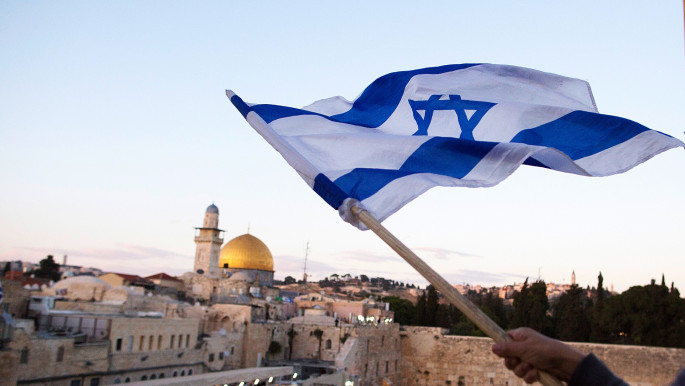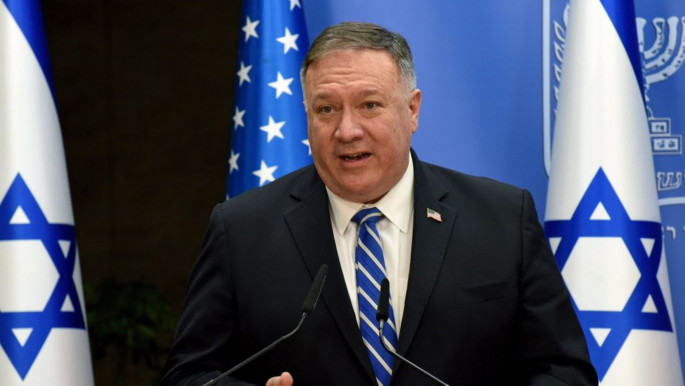Despite US pressure, Sudan's cost-benefit analysis puts normalising ties with Israel on hold, for now
But Pompeo left empty handed, due to a combination of adverse factors on both sides in the US and Sudan, leaving many questions unanswered about who controls Sudan's transitional foreign policy and the future of Sudanese-US-Israeli relations.
Pompeo travelled to Khartoum in what was the "first official non-stop flight" from Israel to Sudan, and the second visit by a top US diplomat in 16 years. His trip was almost completely designed to encourage the transitional government in Sudan to recognise Israel and normalise ties with the Tel Aviv, following a similar pitch he made in a number of Arab countries, including Bahrain and Oman, to follow the UAE's lead.
For the Sudanese government, and to many governments in the region, normalising ties with Israel is increasingly being seen as the best way to win favour in Washington. Sudan thus hoped Pompeo's visit would discuss removing Khartoum from its blacklist of state sponsors of terrorism, seen as a significant obstacle towards addressing a mounting economic crisis in the country.
 |
|
| Read more: How Sudan generals' rapprochement with Israel exposes weakness of democratic transition |
But while the US began easing long-standing economic and trade sanctions in 2017 in the last days of the Obama administration, Sudan remained on the state terrorism list.
US President Donald Trump continued to remove sanctions on the country, but Sudan's economic downturn continued, with international financial institutions and private banks maintaining their boycott in actions seen as "over compliance" due to the continued blacklisting.
For this reason, many in Sudan were already sceptical about the outcome of Pompeo's visit, especially seeing as the perceived purpose of the trip was to discuss normalisation with Israel, rather than US-Sudanese ties.
Earlier this year, General Abdel Fattah al-Burhan, head of Sudan's sovereign council, met with Israeli Prime Minister Benjamin Netanyahu in Entebbe, Uganda. The February meeting was the first of its kind, and it appeared to follow the lead of his ousted predecessor Omar al-Bashir, who had hinted at closer ties towards the end of his presidency.
General Abdel Fattah al-Burhan was likely seeking recognition and legitimacy from the US and signalling his personal intentions to stay in power, motivated by fears about the possible indictment of the Transitional Military Council's leaders for the massacre of pro-democracy demonstrators in June 2019.
 |
For the Sudanese government, normalising ties with Israel is increasingly being seen as the best way to win favour in Washington |  |
The short meeting between al-Burhan and Netanyahu stirred heated debates in Israel and Sudan. Back in Khartoum, the civilian government, headed by Prime Minister Abdalla Hamdok, denied that al-Burhan consulted with them, and said that the meeting was a violation of the Constitutional Declaration governing the transition.
In the days following the meeting, the cabinet and the sovereign council had a joint meeting in which they agreed that normalisation with Israel is the responsibility of the cabinet. A committee was formed to follow up on the al-Burhan and Netanyahu meeting.
In Israel, the meeting was met with a positive response. After the news broke, Netanyahu tweeted: "I met in Entebbe with the head of Sudan's Sovereignty Council, Abdel Fattah al-Burhan, and we agreed to start a cooperation that would lead to normalization of ties between the two countries. History!"
Netanyahu said that Sudan was moving in a "positive direction", and expressed these views to the US Secretary of State. Just weeks after the meeting Israeli planes flew through Sudanese airspace for the first time, in what was cited as an example of warming ties.
 |
|
| Read more: After UAE-Israel deal, which Arab countries could be next? |
Sudan's political transition
The Forces for Freedom and Change (FFC), a coalition that organised and led the protests which deposed former President Omar al-Bashir, rejected any rapprochement with Israel and condemned the Burhan-Netanyahu meeting.
The group, which negotiated the agreement with the Transitional Military Council to pave the way for a transitional government, took a similar position to religious groups and some of the former regime's supporters. Despite protests, Burhan was backed by Sudan's top brass, who said the meeting could boost national security.
Prior to Pompeo's arrival, Sudanese Prime Minister Abdalla Hamdok convened a meeting with the FFC's Central Council to determine the group's position since it was clear the top US official's objective was to solicit Khartoum's normalisation of ties with Israel.
FFC coalition members were divided on the issue, with the National Umma Party and leftist and Arab nationalist groups voicing their opposition to the move.
 |
Pompeo's trip was almost completely designed to encourage the transitional government in Sudan to recognise Israel and normalise ties |  |
Absent a clear American offer and any real Sudanese consensus on normalisation, Hamdok told Pompeo that the transitional government does not have a mandate to initiate official ties with Israel and is focused on the specific agenda of achieving "peace and stability" and holding free elections. The FFC adopted a similar position in the wake of the Burhan-Netanyahu meeting.
Direction of Sudan-Israel ties
After 30 years of hostile attitudes and rhetoric against Israel, public opinion is generally unsupportive of normalisation. Sudan is currently focused on internal problems such as formalising peace agreements and bolstering an economy in crisis.
 |
|
| Pompeo's normalisation tour failed to replicate UAE-Israel deal in the Middle East. Here's why |
While there has been support for normalisation in some quarters, especially if it is part of a deal that improves Sudan's position, it has not found official consensus. Foreign ministry spokesman Haydar Badawi Sadig, for example, praised the UAE-Israel normalisation agreement as a "brave" step and was promptly fired for his comments.
Pompeo thus left without a Sudanese buy-in for normalisation. Yet it remains to be seen what could happen after the end of the transitional government.
Indeed, just as Burhan's meeting with Netanyahu was framed as being in the national interest, if the US was to remove Sudan from the state terrorism blacklist it could generate positive public opinion towards normalisation by boosting the economy, possibly even before the end of the transitional period, and it is not clear whether popular opposition to normalisation would be strong enough to act as a backstop.
As for now, Sudan is currently negotiating compensation for the victims of the al-Qaeda attacks in Kenya and Tanzania in 1998. However, if it is not removed from the terror list, normalisation with Israel will be off the cards.
In fact, the whole democratic transition in Sudan could be in imminent danger due to the ongoing economic crisis and the faultlines within it being exposed by domestic and foreign pressures.
Munzoul Assal is Professor of Social Anthropology and former Director of the Peace Research Institute at the University of Khartoum.
Follow him on Twitter: @Munzoul





 Follow the Middle East's top stories in English at The New Arab on Google News
Follow the Middle East's top stories in English at The New Arab on Google News


